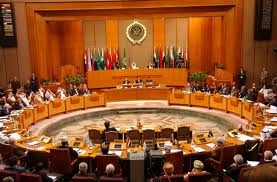Arab leaders began arriving to Kuwait where the annual summit is being held amid unprecedented diplomatic fallout among the Gulf countries and tension over the crisis in Egypt and Syria
Arab leaders began arriving to Kuwait where the annual summit is being held amid unprecedented diplomatic fallout among the Gulf countries and tension over the crisis in Egypt and Syria.
 Several leaders have already arrived in Kuwait for the two-day Arab League summit, which begins on Tuesday, including the Egyptian interim prime minister, the Yemeni president and the head of Libya's General National Congress.
Several leaders have already arrived in Kuwait for the two-day Arab League summit, which begins on Tuesday, including the Egyptian interim prime minister, the Yemeni president and the head of Libya's General National Congress.
Arab Rifts
Nothing new is expected to come out from the summit in which the Syrian conflict would take center stage and the regional rift over Egypt's Muslim Brotherhood would be kept off the agenda.
The dispute which broke out in the runup to the summit pits Qatar against Egypt, Saudi Arabia, Bahrain and the United Arab Emirates. Egyptian Foreign Minister Nabil Fahmi told reporters it was not possible to forge a compromise with Qatar during the summit because "the wound is too deep."
Kuwait's foreign ministry undersecretary Khaled al-Jarallah also said the dispute between Qatar and its neighbors would "be resolved within the Gulf house", not at the Arab summit.
The issue of disputes between Arab countries was not even raised at the ministerial meeting on Sunday, said Iraqi Foreign Minister Hoshyar Zebari. "There were no controversial issues or problems, and the atmosphere was very positive," he said.
Saudi Arabia, the UAE and Bahrain have recalled their ambassadors from fellow Gulf Cooperation Council member Qatar in protest at Doha's perceived support for the Muslim Brotherhood, branded a terrorist organization by Cairo and Riyadh.
With the focus on Syria, its opposition National Coalition (NC) head Ahmad al-Jarba is due to address Arab leaders at the opening session. But the NC will not fill Syria's vacant seat -- which it was allocated at the last Arab summit held in Doha in 2013 -- because it has yet to meet the legal requirements, said Arab League chief Nabil al-Arabi.
The UN-Arab League mediator on Syria, Lakhdar Brahimi, will also brief leaders of the 22-member League on the dim prospects of a political settlement after the failure of two rounds of Geneva peace talks. He said Monday that a further round of peace talks between the Syrian regime and the opposition was "out of the question for the time being".
Arab foreign ministers at a preparatory meeting on Sunday urged the UN Security Council to pass a resolution under Chapter 7, which threatens the use of force.
Low-Profile Representation
The rift among Arab countries has apparently affected the level of representation at the summit, which is being held in Kuwait for the first time. 13 heads of state had confirmed their attendance, with low-profile representation from Kuwait's Gulf partners.
The UAE is sending the ruler of the small emirate of Fujairah. Saudi Arabia's ailing King Abdullah will be represented by Crown Prince Salman bin Abdulaziz. Oman is dispatching his special envoy, while Bahrain is sending the crown prince, Salman bin Hamad Al-Khalifa.
Apart from Kuwait, only Qatar among the Gulf states is being represented at the level of head of state.
Summit to Reject Recognizing “Israel”
On the Palestinian issue, Arab leaders are expected to call for $100 million in monthly aid for the Palestinian Authority and to reject recognition of “Israel” as a Jewish state.
The summit stresses a "categorical rejection" of the demand for recognition of Israel as a Jewish state, according to a draft statement endorsed by foreign ministers. The statement also rejects "all pressures exerted on the Palestinian leadership" to force it into agreeing.
Palestinian leader Mahmud Abbas, fresh from talks with US President Barack Obama in Washington last week, is to brief his Arab counterparts.